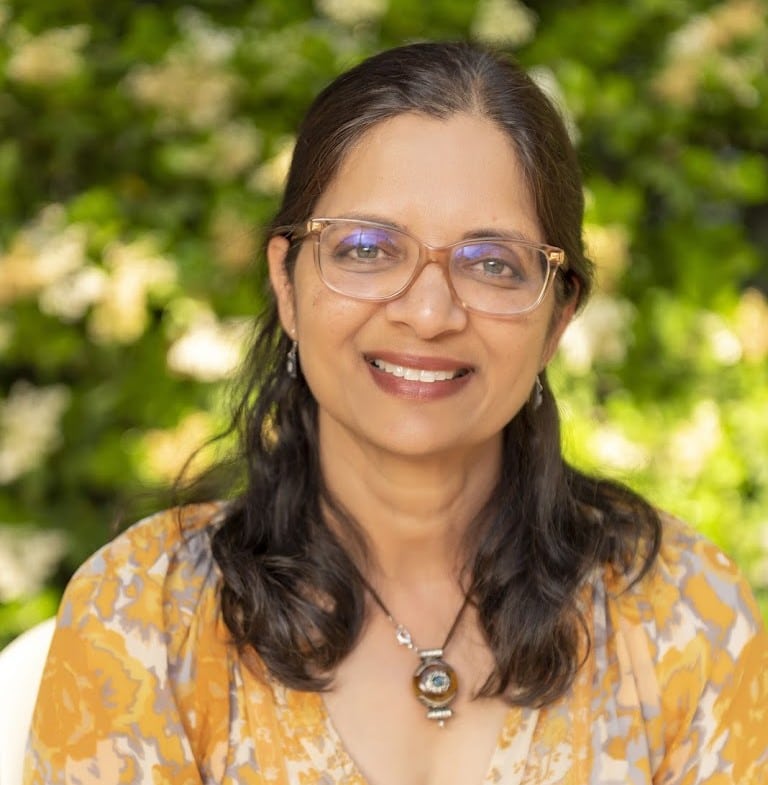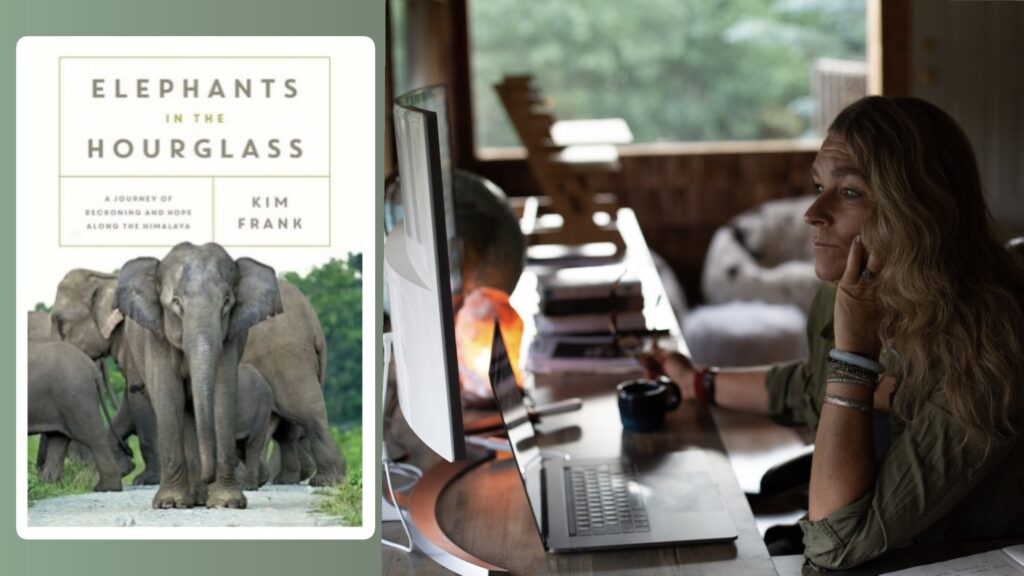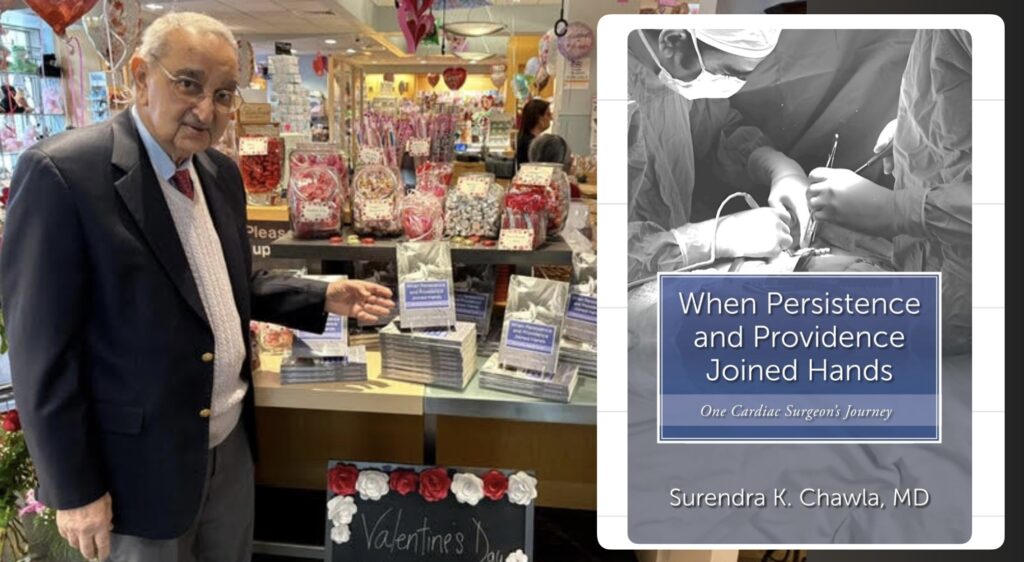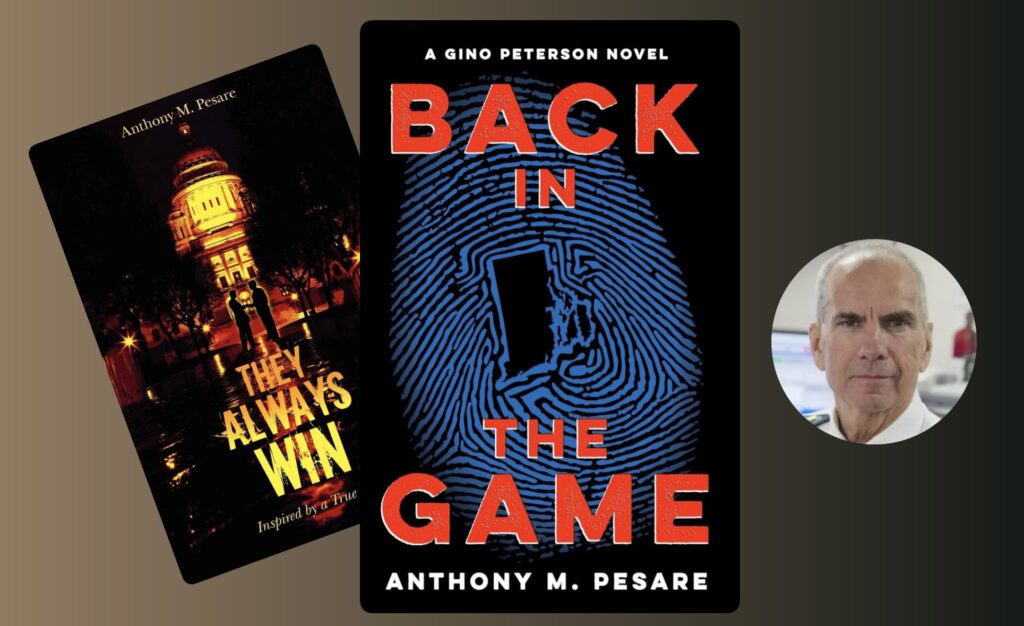Madison Utley speaks to Vibha Akkaraju following the completion of her memoir, Like Ketchup on Roti. The two discuss the importance of getting out of your own way as a writer, how to sustain motivation over a years-long writing process, and the importance of finding the right people to be part of your support crew.

Q: To start, can you give me a high-level overview of your writing history?
A: I did a bachelor’s and a master’s in English literature. I liked writing, and dabbled in journalism for a bit, but I never wrote with any consistency. Right out of school, I had to get a job that could make a living. For me that was technical writing, but I didn’t find any satisfaction in my career. Luckily, I was able to quit my job after our first kid was born.
It was in 2016 that I walked into a prompt-based writing workshop led by Beth Dunnington. I was terrified. All my writing in college had been super structured, but this workshop was the opposite, designed to eliminate fear and hesitancy. You’re given a bunch of prompts. You write, write, write–by hand. It’s timed, like a sprint, and the focus is on moving forward. The editor in you has to take a back seat. I found that approach blew open the world of writing for me. All of the second guessing we can slip into when we’re writing, the perfecting the first sentence before moving onto the second, is counterproductive. Allowing my thoughts to flow instead was transformative. I didn’t know I was writing a book. Beth was the one who saw a theme in my work and asked me about it. I was like, “A book? That’s a four letter word. No!” I held that stance for a couple more years.
Q: When and why did that change?
A: The stories I was drawn to were stories about my family–stories of immigration and shifting identities and our varying responses to our move from India to the US. Eventually I realized maybe Beth was right and there was a book here. But I was completely lost in the woods. I had all these stories but I couldn’t really see the arc. People gave me feedback on individual, small pieces but I needed somebody to look at the whole thing, the big overview. I didn’t have the confidence or, frankly, the expertise to self diagnose the problem or the solution.
While I was conflicted and doubtful about sharing my story at times, I believed it was important to tell an immigration story that wasn’t necessarily born of major trauma in the classic sense. Our story was not one of migrants who come across a border and really suffer. We were quite blessed actually. Yet still, changing countries at a preadolescent age when you’re very tender and vulnerable was hard. That was something I wanted to write about. I thought about Chimamanda Adichie’s talk about the importance of many stories. She says each kind of story–an immigrant story, a love story, a coming of age story–should be told from many different angles. No one point of view is enough.
Q: It sounds like in order to finish the memoir, you had to do some real soul searching to put words to how you understand your own narrative in your heart and mind?
A: Yeah, as an immigrant, in the beginning, you’re just in survival mode. I was sent to school here four days after we landed knowing maybe 50 words of English. So the first few years, you’re just trying to learn the spoken language, the body language, the culture, the music, the clothing, the food. Only later do you realize that this first level of assimilation has gotten relatively easy. I moved here in 1982, and 40 plus years later, I’m still grappling with what it means to be an Indian-American parent and what it means for my kids to be Indian-American. How do we navigate this bicultural identity? What do we hold onto? What do we let go of? Questions of identity can be complicated–but writing clarifies, right? And luckily, I found these big questions interesting. Interesting enough to sustain my motivation for many years.
Q: Other than that internal drive to answer the big questions pressing on you, what else sustained your motivation over the course of so many years?
A: I was very fortunate to be surrounded by people who really believed in the project; my husband and my family urged me onward when I started to falter. I also write with a group of talented writers under a gifted teacher named Eanlai Cronin. It’s a weekly dose of inspiration and support. A book is such a long-haul project, I felt I needed to work in community with others. Still, it wasn’t always a smooth road. I would sometimes get overwhelmed and despirited. I realize now looking back that the periods of doubt and low-motivation for this project were directly tied to a lack of direction.
When I saw Stuart give a talk at CWC here in Redwood City, I connected with his very clear method. At that point, I knew I needed to overlay a method onto the madness of my writing process. I gave him my first 10 pages and I loved what he had to say. He was super smart and understood what I was trying to do. His feedback was thoughtful. He helped keep my focus on only the one step in front of me. That was it. Even now, he’s encouraging me to just submit the manuscript to agents and stop worrying about which publisher may or may not pick it up. This focus on the work helped quiet the overthinking and self doubt and spiraling I could fall into. Having a combination of somebody who really knew a structured path forward, somebody whose judgment I trusted, and who kept me focused on the work was invaluable. Once you get the momentum going, wonderful things happen.
Q: What advice do you have for other writers who are in that first stage of feeling like they do have a book but feeling incredibly far from its finished state, unsure of how to bridge that gap?
A: Don’t be afraid of getting help. Whether it’s a book coach or a committed writing companion, an editor, whatever you need. I knew that if I didn’t finish this book, I would regret it for the rest of my life. I needed accountability. I needed a guiding hand. But I was afraid of getting help initially because I wanted to be able to claim this as 100% my own writing. It turns out that worry was completely misplaced. Stuart guided me in coming up with my own answers. And I realized that everyone needs guidance, no matter what they are pursuing–be it sports, medicine, law, visual arts, whatever. It is wonderful to have somebody who becomes your partner in this incredible journey, somebody who’s done this trip many times before.
More than anything, though, have faith in yourself. When other people tell you that you’re a good writer, believe them. And make the investment in yourself that you’d encourage your kids or your best friend to make in themselves, whether that’s dedicated time or professional assistance. I read a book that really helped me, The War of Art by Steven Pressfield. He personifies internal resistance. The author says that when you declare, say, that you’re going to be working from 9 to 12 in the morning, initially people will push back. “What, no, I wanted to get a coffee with you then.” But soon they’ll learn this is sacred time. I actually did that and my loved ones really respected it and would never reach out to me during that window. Everybody falls in line–as soon as you prioritize yourself, they’ll start prioritizing you. It just takes a little discipline in the beginning.



